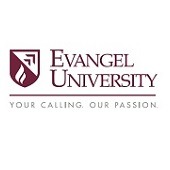
(View Complete Item Description)
Chemistry is designed to meet the scope and sequence requirements of the two-semester general chemistry course. The textbook provides an important opportunity for students to learn the core concepts of chemistry and understand how those concepts apply to their lives and the world around them. The book also includes a number of innovative features, including interactive exercises and real-world applications, designed to enhance student learning.
Coverage and scope
Our Chemistry textbook adheres to the scope and sequence of most general chemistry courses nationwide. We strive to make chemistry, as a discipline, interesting and accessible to students. With this objective in mind, the content of this textbook has been developed and arranged to provide a logical progression from fundamental to more advanced concepts of chemical science. Topics are introduced within the context of familiar experiences whenever possible, treated with an appropriate rigor to satisfy the intellect of the learner, and reinforced in subsequent discussions of related content. The organization and pedagogical features were developed and vetted with feedback from chemistry educators dedicated to the project.
Chapter 1: Essential Ideas
Chapter 2: Atoms, Molecules, and Ions
Chapter 3: Composition of Substances and Solutions
Chapter 4: Stoichiometry of Chemical Reactions
Chapter 5: Thermochemistry
Chapter 6: Electronic Structures and Periodic Properties of Elements
Chapter 7: Chemical Bonding and Molecular Geometry
Chapter 8: Advanced Theories of Covalent Bonding
Chapter 9: Gases
Chapter 10: Liquids and Solids
Chapter 11: Solutions and Colloids
Chapter 12: Kinetics
Chapter 13: Fundamental Equilibrium Concepts
Chapter 14: Acid-Base Equilibria
Chapter 15: Equilibria of Other Reaction Classes
Chapter 16: Thermodynamics
Chapter 17: Electrochemistry
Chapter 18: Representative Metals, Metalloids, and Nonmetals
Chapter 19: Transition Metals and Coordination Chemistry
Chapter 20: Organic Chemistry
Chapter 21: Nuclear Chemistry
Pedagogical foundation and features
Throughout Chemistry, you will find features that draw the students into scientific inquiry by taking selected topics a step further. Students and educators alike will appreciate discussions in these feature boxes.
Chemistry in Everyday Life ties chemistry concepts to everyday issues and real-world applications of science that students encounter in their lives. Topics include cell phones, solar thermal energy power plants, plastics recycling, and measuring blood pressure.
How Sciences Interconnect feature boxes discuss chemistry in context of its interconnectedness with other scientific disciplines. Topics include neurotransmitters, greenhouse gases and climate change, and proteins and enzymes.
Portrait of a Chemist presents a short bio and an introduction to the work of prominent figures from history and present day so that students can see the “face” of contributors in this field as well as science in action.
Material Type:
Textbook




















